
Adults and children with unresectable or metastatic alveolar soft part sarcoma—one of the rarest types of sarcoma—can now receive treatment with atezolizumab, which was given the nod of approval by the FDA.

Your AI-Trained Oncology Knowledge Connection!


Adults and children with unresectable or metastatic alveolar soft part sarcoma—one of the rarest types of sarcoma—can now receive treatment with atezolizumab, which was given the nod of approval by the FDA.

Patients with operable, locally advanced triple-negative breast cancer experienced notable improvements in survival following treatment with neoadjuvant carboplatin plus sequential taxane-anthracycline neoadjuvant chemotherapy.

Long-term findings from the phase 2 GeparOLA trial indicate that olaparib plus paclitaxel and carboplatin did not result in further benefit vs paclitaxel, and carboplatin for patients with HER2-negative, homologous recombination–deficient early breast cancer.

Robert Mutter, MD, of Mayo Clinic says that proton postmastectomy radiation therapy allows for excellent tissue sparing in the management of breast cancer.

Patients with multiple ipsilateral breast cancer might benefit from having a preoperative MRI before proceeding with breast conservation therapy, according to Judy C. Boughey, MD, of Mayo Clinic in Rochester, Minnesota.

Results from the phase 3 STIC CTC trial found an improved overall survival when circulating tumor cells were used as a guide in combination with chemotherapy or endocrine therapy in patients with hormone receptor–positive/HER2-negative breast cancer.

Patients with estrogen receptor–positive, HER2-negative metastatic breast cancer did not derive further benefit when palbociclib was added to fulvestrant.
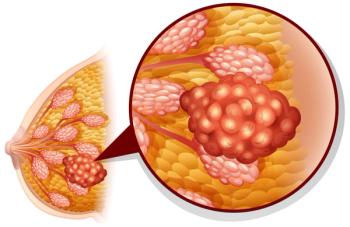
Patients with ER-positive/HER2-negative metastatic breast cancer had improved progression-free survival when treated with elacestrant compared with standard of endocrine therapy.

Results from the real-world analysis of the phase 2 HER2CLIMB trial showed a good safety profile with the tucatinib triplet regimen in patients with HER2-positive metastatic breast cancer.

ARV-471 monetherapy showed clinical benefit in an expansion cohort of patients with locally advanced or metastatic breast cancer, according to data from the VERITAC trial.

Treatment with a range of camizestrant monotherapy doses resulted in a survival benefit compared with fulvestrant in a post-menopausal patient population diagnosed with estrogen receptor–positive, HER2-negative advanced breast cancer.

Patients with HER2-low or HER2-0 metastatic breast cancer who previously received at least 1 chemotherapy agent garnered similar benefit from eribulin mesylate vs standard physician's choice chemotherapies.

Results from the phase 3 CAPItello-291 trial indicated that the combination of capivasertib plus fulvestrant produced improved progression-free survival in patients who have hormone-receptor–positive/HER2-negative advanced breast cancer.
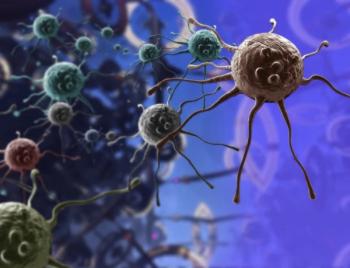
Trastuzumab deruxtecan improved survival outcomes vs trastuzumab emtasine in patients with HER2-positive breast cancer, according to updated results from the DESTINY-Breast03 trial.
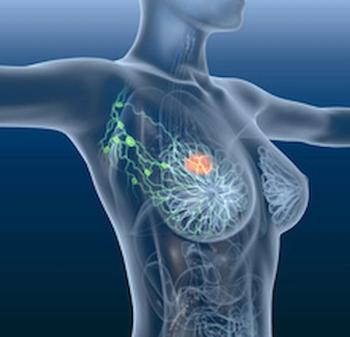
Data from the phase 2 TRIO-US B-12 TALENT trial indicate that fam-trastuzumab deruxtecan-nkxi in the neoadjuvant setting with or without endocrine therapy could be beneficial for patients with hormone receptor–positive, HER2-low breast cancer.

Yoga and conventional exercises also demonstrated long-term improvement in quality of life during treatment for non-metastatic breast cancer, according to results presented at the 2022 San Antonio Breast Cancer Symposium.

Patients with advanced HER2-positive breast cancer had improved progression-free and overall survival when treated with trastuzumab deruxtecan compared with capecitabin-based treatment, according to recent findings.

Experts believe that use of the Breast Cancer Index test in patients with early-stage, hormone receptor–positive breast cancer who are undergoing treatment with endocrine therapy may help to identify those who could be good candidates for the addition of ovarian function suppression.

The phase RIGHT Choice trial yield a 46% reduction in disease progression when ribociclib was added to endocrine therapy for patients with pre/perimenopausal hormone-receptor–positive/HER2-negative advanced breast cancer.

A racial disparity was determined when the tumor microenvironment of metastasis doorway density was found to be higher in Black women vs White women.
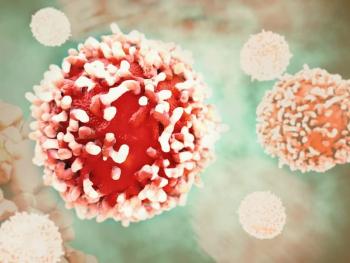
Non-Hispanic Black patients with HR+ breast cancer experienced worse overall outcomes compared with other patient subgroups despite similar recurrence scores, according to a recent analysis of the phase 3 RxPONDER trial.

Everolimus failed to improve survival outcomes when added to adjuvant endocrine therapy in patients with HR+/HER2- breast cancer, according to findings from the phase 3 SWOG S1207 trial.

The prespecified overall survival analysis of the phase 3 monarchE trial when abemaciclib was added to endocrine therapy in patients with hormone receptor–positive, HER2-negative, node-positive early breast cancer.

Pre- and postmenopausal women with breast cancer may experience cognitive impairment with chemotherapy and endocrine therapy, which may return to baseline after 36 months.

The marketing authorization application for oral momelotinib in myelofibrosis has been approved by the European Medicines Agency.
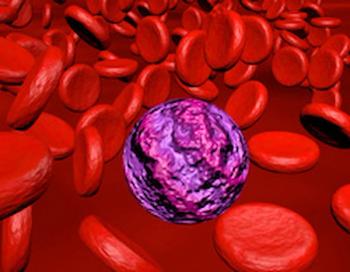
Revumenib, which was given a breakthrough therapy designation by the FDA, may be beneficial in the management of relapsed or refractory KMT2A-rearranged acute leukemia based on data from the phase 1 AUGMENT-101 trial.

Treatment with dostarlimab plus chemotherapy demonstrated a statistically significant improvement in progression-free survival compared with placebo and chemotherapy among patients with advanced or recurrent endometrial cancer.
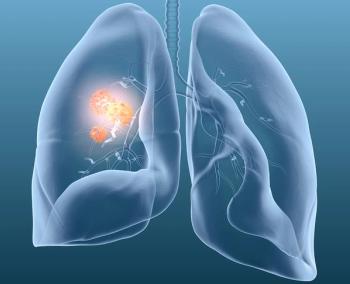
The EGFR inhibitor neratinib may be effective in the treatment of non-small cell lung cancer, according to updated interim findings from the phase 2 SUMMIT trial.

A panel of experts discusses the treatment approaches to three clinical cases of multiple myeloma in the context of data presented at recent meetings and reviews how it can be applied to daily clinical practice.
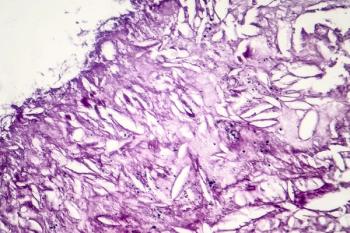
A secondary analysis from the phase 3 SWOG S1404 trial indicated that adjuvant pembrolizumab yielded improved patient-reported outcomes compared with high-dose interferon α or ipilimumab in the treatment of patients with high-risk resected melanoma.